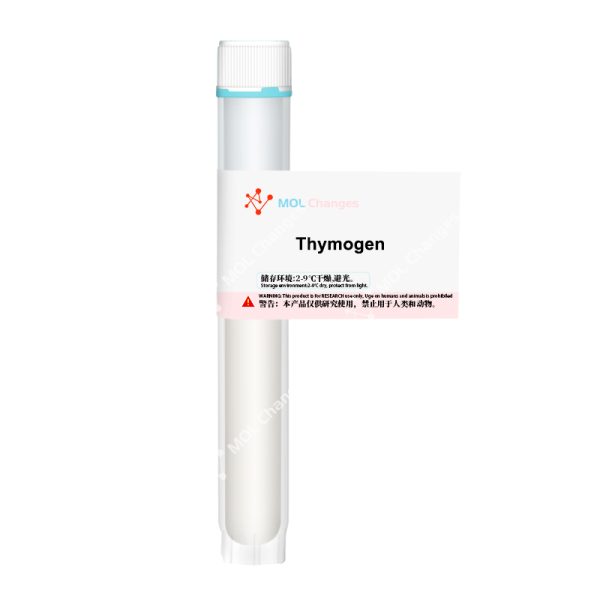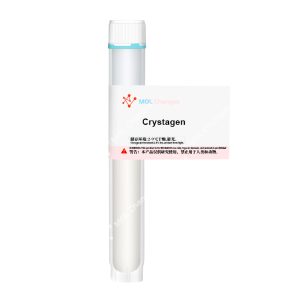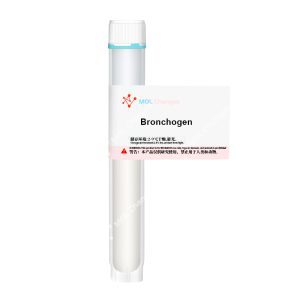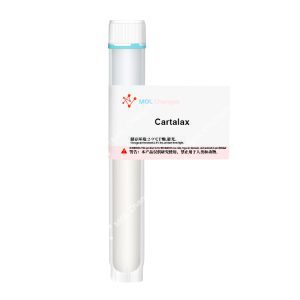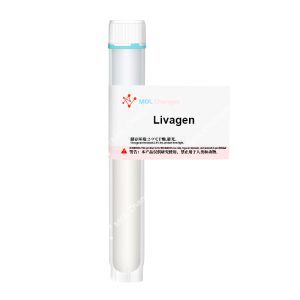Thymogen is an immunomodulatory peptide originating from the thymus gland. First isolated and purified from bovine thymus extract in the early 1970s, its name ‘Thymogen’ reflects its primary action – stimulating the differentiation of pre-T cells into various forms of functional T cells.
Adjunct immunological therapy is therefore a well established use for this peptide.
Sequence
Glu-Trp
CAS Number
/
Molecular Formula
C16H19N3O5
Molecular Weight
333.344
Research Of Thymogen Peptide
1.Mechanism of Action
Effective and precise intervention within the proliferation and subsequent functional maturation of these lymphocytes is one of its key properties. Endogenous thymic hormones’ biological activity is enhanced by Thymogen; interacting with downstream signaling pathways, the peptide promotes the synthesis and at least partial secretion of important cytokines (IL-2 being a prime example), and upregulation of high affinity IL-2 receptors.
2.Clinical Applications
Clinical treatment uses of Thymogen directly address the body’s antiviral and anti-intracellular pathogen capabilities; improved immune surveillance and the eventual clearance of certain tumor cells are two desirable outcomes.
Reductions in specific T cell numbers or functional impairment in various immunodeficiency states can be corrected. Restoring the Th1/Th2 balance is also a part of its clinical potential.
3.T Lymphocyte Development
Promoting (and maintaining) T lymphocyte development, differentiation and all related aspects of maturation: Mimicking the natural thymic microenvironment, Thymogen acts directly on the ‘core’ of the immune system.
Specific binding to target cells followed by intracellular signaling is what drives this process.
Mature T cell subsets are the end product, normal pool size and function being the ideal end state of regulation the body requires.
Aging related immune decline is one of the more important clinical challenges to which Thymogen offers a real and measurable degree of help.
4.Anti-infective Immunity
Enhancing cellular immune responses and anti-infection capabilities: Thymogen significantly enhances the efficacy of the body’s cellular immune response.
Upon pathogen invasion, Thymogen strongly promotes T cells to secrete various key cytokines; direct phagocytosis and subsequent killing of pathogens is greatly assisted by these factors.
Clinical applications of Thymogen show effective improvement in the body’s defense against both chronic and recurrent infections, shortening the course of such infections, reducing the frequency of recurrence; weakened immune function patients benefit most from this particular aspect of its action.
5.Adjunctive Anti-tumor Effects
Thymogen can significantly enhance Cytotoxic T cell /CTL activity and proliferation, all associated with specific cytokine production (IFN-γ being a prime example).
Recognizing and eliminating tumor cells is part of the innate/adaptive immune system’s primary function, immune surveillance being the more precise term used.
Radiotherapy and chemotherapy damage the hematopoietic and immune systems to some degree; post treatment immune impairment is a well documented side effect.
Thymogen use in this context helps the patient’s body recover immune function from said damage, concurrent infections being reduced, quality of life improved.
COA
HPLC
MS




